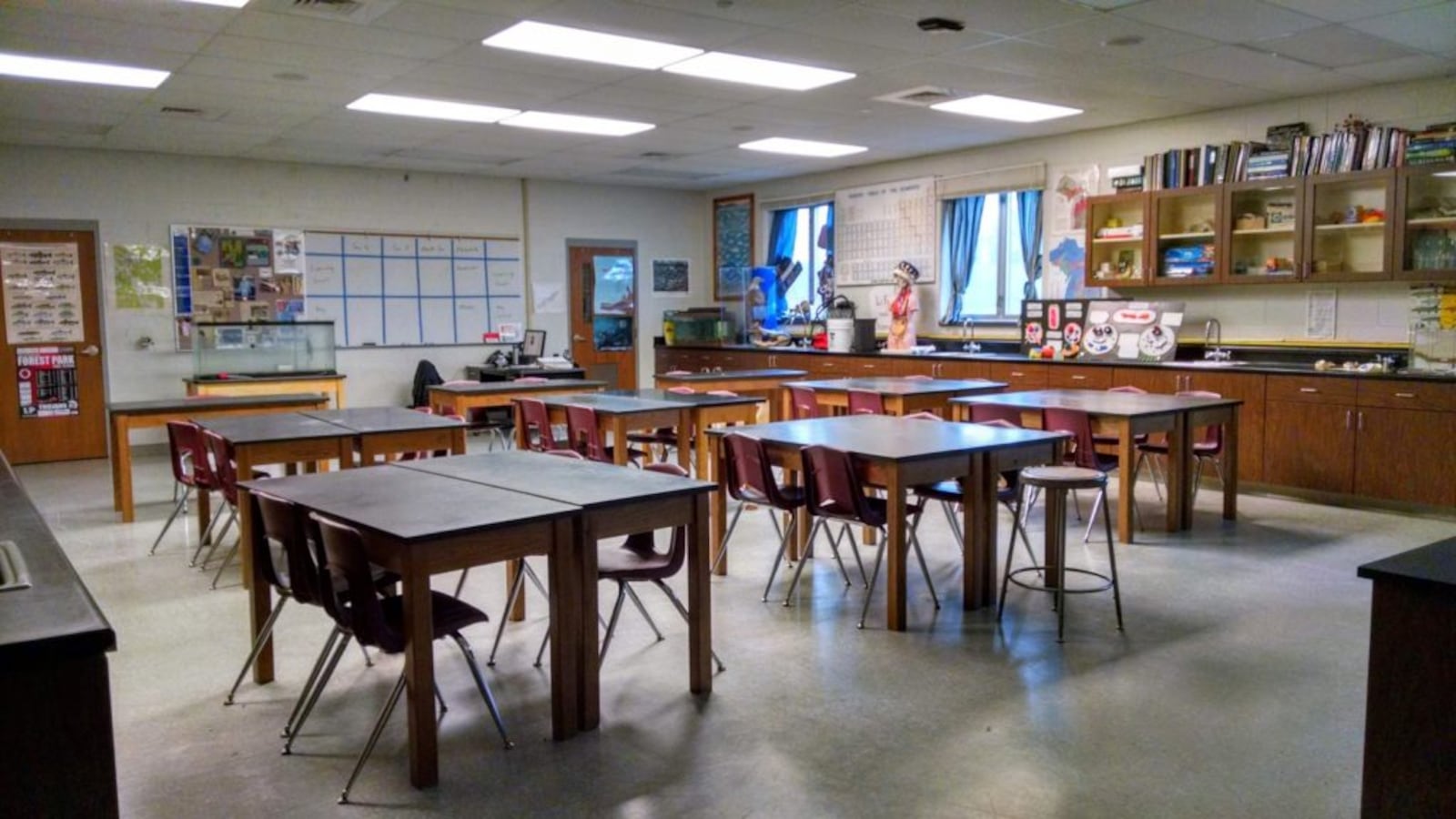Roughly 1.5 million Michigan students will be out of school starting Monday for three weeks, part of a statewide effort to limit the spread of COVID-19.
That doesn’t mean they have to stop learning.
Michigan educators are scrambling to assemble plans for an unprecedented shift to online learning. Before Gov. Gretchen Whitmer on Thursday ordered all schools closed to slow the spread of the new coronavirus, dozens of districts had already canceled classes in coming days to give teachers time to prepare for online learning.
With students at home on Friday, teachers at schools across the state reported to school to develop virtual lesson plans. That included educators in West Bloomfield, a suburb of Detroit:
In a new Facebook group called Keep Michigan Learning, a teacher in Walled Lake posted an online activity she created for students last winter, when Michigan had more snow days than usual. Students posted videos of themselves describing the books they were reading at home.
“This is a time when teachers are going to demonstrate their creativity in the face of adversity and do whatever they can to help their students,” said Jamey Fitzpatrick, president of Michigan Virtual, a state-funded nonprofit that trains teachers in virtual learning, and which trains teachers to provide online instruction.
“Is it going to match the quality of what students would be experiencing in a physical classroom? No,” he said. “Does it help close their learning gaps? Yes.”
Michigan Virtual also created a checklist for schools to help them gauge their readiness to help students learn remotely.
Fitzpatrick estimated that 90% of Michigan families have an internet connection. That opens the door for widespread online learning, but it also raises questions about students who may be left behind. Nikolai Vitti, superintendent of the Detroit Public Schools Community District, said earlier this week that online learning isn’t an “at scale” option for the district of 50,000 students. A 2017 report found that just 67.5% of Detroit households had broadband internet, the lowest rate among 25 large U.S. cities.
“We do have some serious equity issues that we need to address,” Fitzpatrick said.
He suggested that teachers explore relatively low-tech instruction strategies — recording a short video on a cell phone, for example, and emailing it or texting it to students.
“I would say that most teachers are ready to do something,” he said.


